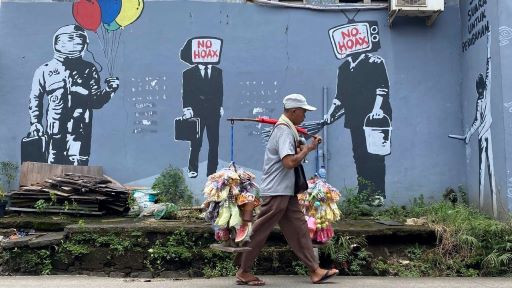Popular Reads
Top Results
Can't find what you're looking for?
View all search resultsPopular Reads
Top Results
Can't find what you're looking for?
View all search resultsDigital literacy, not censorship, is key to mitigating social media harm
The manipulation of public opinion through social media is particularly concerning in contexts where internet freedom is limited, as this reduces the availability of diverse information and increases the impacts of propaganda.
Change text size
Gift Premium Articles
to Anyone
I
n today's digital age, social media wields unprecedented influence over democratic processes, a double-edged sword that can act as a powerful tool for communication or misinformation. While some advocate for the blunt instrument of censorship to combat the negative effects of social media, a more effective and ethical solution lies in promoting digital literacy.
We know social media platforms do have harmful effects on democracy, especially a budding one like Indonesia, as evident in the spread of misinformation that significantly undermines public trust in democratic institutions.
Studies have shown that the dissemination of false information, particularly during elections, erodes public confidence in the electoral process and democratic governance. For instance, misinformation can distort voter perceptions and lead to misguided political decisions. Furthermore, the spread of fake news disrupts public opinion and influences electoral outcomes, contributing to political instability and a lack of trust in the political system.
In addition to distorting perspectives, social media can also reinforce polarization of perspectives. Social media algorithms often create echo chambers by promoting content that aligns with users' existing beliefs while filtering out content that provides opposing viewpoints, constructing bubbles that reduce the possibility for cross-cutting political dialogue. This selective exposure entrenches partisan divisions.
Another manner in which social media can be damaging to democracy is less like a natural occurrence and more like a calculated strike. State-sponsored propaganda and coordinated disinformation campaigns on social media have been widely documented as tools for manipulating public opinion, sowing distrust in democratic institutions and dividing societies. Reports from the Oxford Internet Institute reveal that organized social media manipulation campaigns are prevalent in numerous countries, with governments and political parties spending significant resources on these efforts. These campaigns involve spreading disinformation, employing bots and using fake accounts to amplify misleading messages and suppress dissenting voices.
The manipulation of public opinion through social media is particularly concerning in contexts where internet freedom is limited, as this reduces the availability of diverse information and increases the impact of propaganda.
However, when it comes to combating these issues, censorship is not the answer. The concept of the "Streisand Effect" illustrates how attempts to suppress information can backfire and amplify the very content they aim to censor. This phenomenon is well-documented in multiple cases where censorship attempts led to increased public attention to the censored content.



















